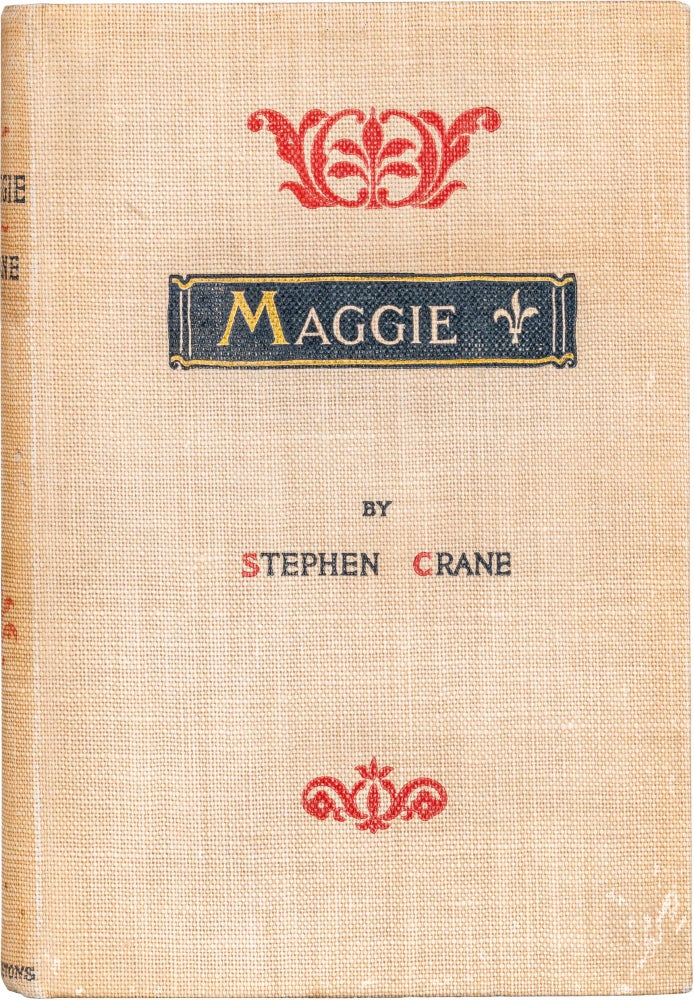
Maggie. A Girl of the Streets
New York: Appleton, 1896. First Edition. Hardcover. 1st hardbound edition. B. A. L. state 1 (title page in 8 lines, title letters in upper and lower case). Precedes the London edition and is preceded only by an 1893, self– published edition of 1,100 copies in paper wrappers (financed by a bequest from his mother) that had sales slower than bluff erosion (10 copies sold, 83 given away, the remainder trashed, 38 known to survive). A neat name on the endpaper still near fine. Near fine. Item #777
Maggie (the book) is set in Hell’s Kitchen, a dark and sordid environment, with its tenements, squalor, cruelty, bigotry, insanity, hypocrisy, false morality, fatalism, alcoholism, violence, fear, spite, self–righteousness, social disorder, and architecture of dejection. All of it snaked around Maggie (the girl), angelic enough to break the heart of Skeletor, but heedless of what envelops her because she has a romantic nature, with its little glimmers of love, innocence, sympathy, loyalty, and dreams, turned to abuse, downfall, prostitution, and suicide, the shroud on it stripped away by Crane’s intensity and irony, sifted through a stark realism that never lays blame, and is slickly melded with shards of naturalism, determinism, symbolism, and humanism, all of it cold and indifferent.
In testifying to condition and detailing bibliography we hold to an alliance between language and truth, and in this catalog especially, we relentlessly expose, condemn, and attack bad bookselling. We also force variety into our catalogs, explore exotic ideas, add our unbridled ambition to take the reader on capricious, discursive detours, and quote from colorful sources. We make the effort because we sense you are tired of dry descriptions or, worse, those fixated on avoiding the anxieties of honest bookselling, some of them, these days, by utilizing distractions like (rudeness alert) pious greenwashing, or intolerant advocacy of tolerance, or rigid presentism, or loudly self–promoted virtue signaling that goes far beyond not hurting anyone’s feelings. And these are dispensed with all the vivacity of miscalculation, and are often mere sleight of hand, employed to misdirect the targeted buyer away from intentionally abridged condition reports, scandalously hazy bibliographical essentials, and desperately exaggerated significance allegations, most of those accounts written with the awkwardness of one hand trying to wash itself, and the annoying monotony of bad wallpaper (Book Code).
Price:
$250.00
